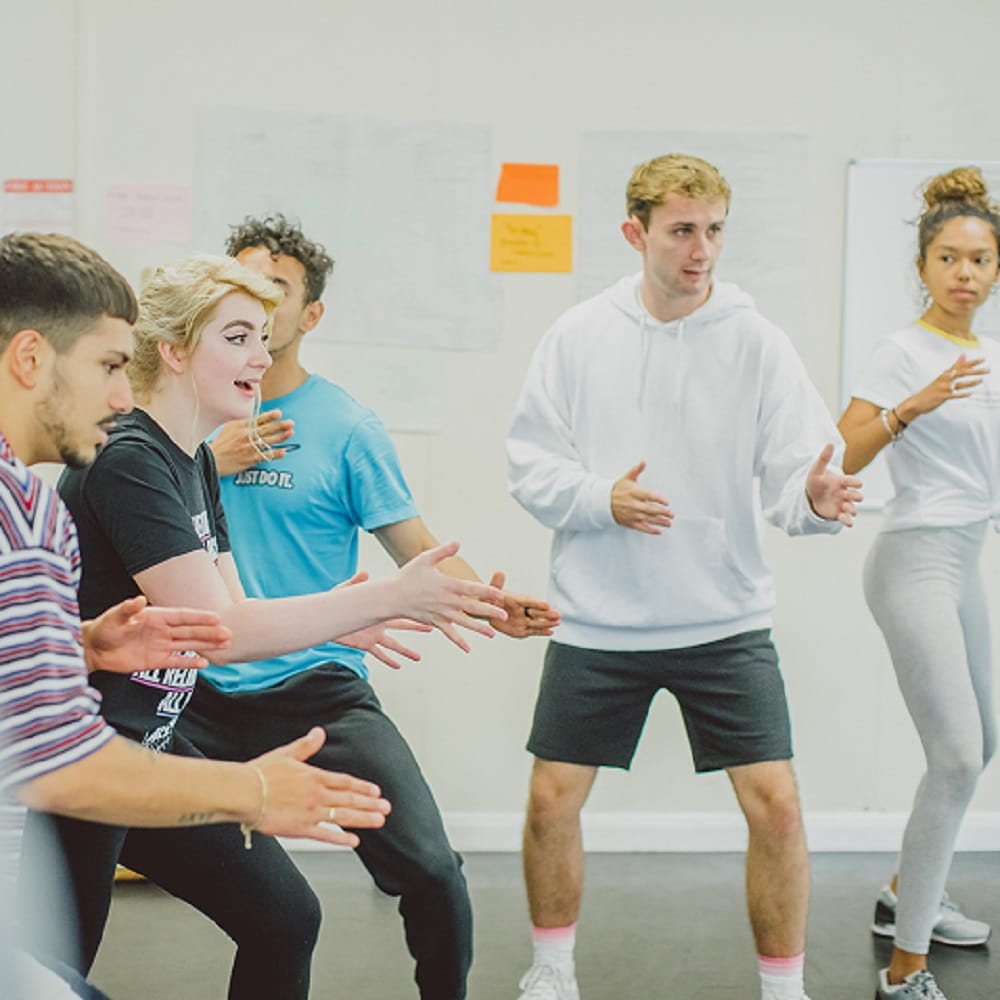Specialist facilities
Loughton Campus
Our Loughton Campus is perfectly located, providing access to both the rich, cultural diversity of London and an attractive and peaceful setting in which to study.
We are just a five-minute walk from London Underground station, Debden, where you can travel in only thirty minutes to Central London, West End theatres and mainline train stations including the Eurostar.
We have three sites at our Loughton Campus – Hatfields, Roding House and Unit Four. Hatfields is a beautiful Georgian dower house, set in five acres of lawns with orchards, flowerbeds and a small lake, providing an idyllic atmosphere for study, relaxation and performance.
Just a short walk from Hatfields is Roding House, a £1.3 million facility containing 10 rehearsal rooms, a green room/café, a sound recording studio and a video editing suite, and our costume department.
Next to Roding House, Unit Four is a £1.5 million facility which is home to the Stage & Production Management department. The Unit contains a large workshop, paint shop, prop shop, prop storage facilities and teaching spaces.
Our on-site Corbett Theatre is named in honour of Harry H Corbett, a key member of Joan Littlewood's Theatre Workshop and early benefactor of East 15. It is used extensively for student productions and is a practical training hub for our BA Stage and Production Management students.
The building is a medieval tithe barn that was dismantled and transported to Hatfields in the 1960s. These unusual origins create a unique performance space with a special atmosphere. Renovated to include full technical facilities, tiered seating for 130 people and fitted dressing rooms, the theatre provides an excellent resource for public productions, while the adjacent Bar and Café provides a social meeting point for students and staff.
Southend Campus
Our Southend Campus is based in the heart of Southend-on-Sea. A vibrant and modern British seaside town with excellent transport links.
Famous for its beach resort and pier, Southend-on-Sea stretches along seven miles of award-winning coastline. There are also over 650 acres of parks and gardens, a fun park, leisure centres, pubs, clubs, cafés and restaurants.
Southend Central railway station is opposite our Campus and the journey to central London takes less than an hour. Southend Airport, with flights to many European and UK destinations is just three miles away. We are also just one hour away from London's Stansted Airport.
Our Gateway Building houses a purpose-built suite specifically for East 15 students. This includes fully equipped, state-of-the art rehearsal studios with panoramic views across Southend-on-Sea, plus seminar rooms, computer labs and media production resources including an Apple Mac edit suite for our BA Creative Producing (Theatre & Short Film) students.
A magnificent Victorian former church in the heart of Southend's conservation area was converted into East 15's Clifftown Theatre. It also houses a variety of unique spaces for rehearsals, technical and practical work and performances. The church nave, with its original organ and stained glass windows now provides an inspirational and atmospheric environment, re-designed to accommodate the needs of a twenty-first century performance space.
In ‘The Forum' building, students have round the clock, secure access to the Learning Hub, which provides innovative IT and study spaces. The Forum also houses an integrated public and academic library, carrying books and other support materials. Students in Southend also have access to the East 15 Loughton Campus library and the University's Colchester Campus library.
Outside of learning, the Students' Union at our Southend Campus provides a dedicated space for students to meet, have a coffee, relax and watch films or sport. It runs a wide variety of entertainment throughout the term, such as international nights and open mic nights.









